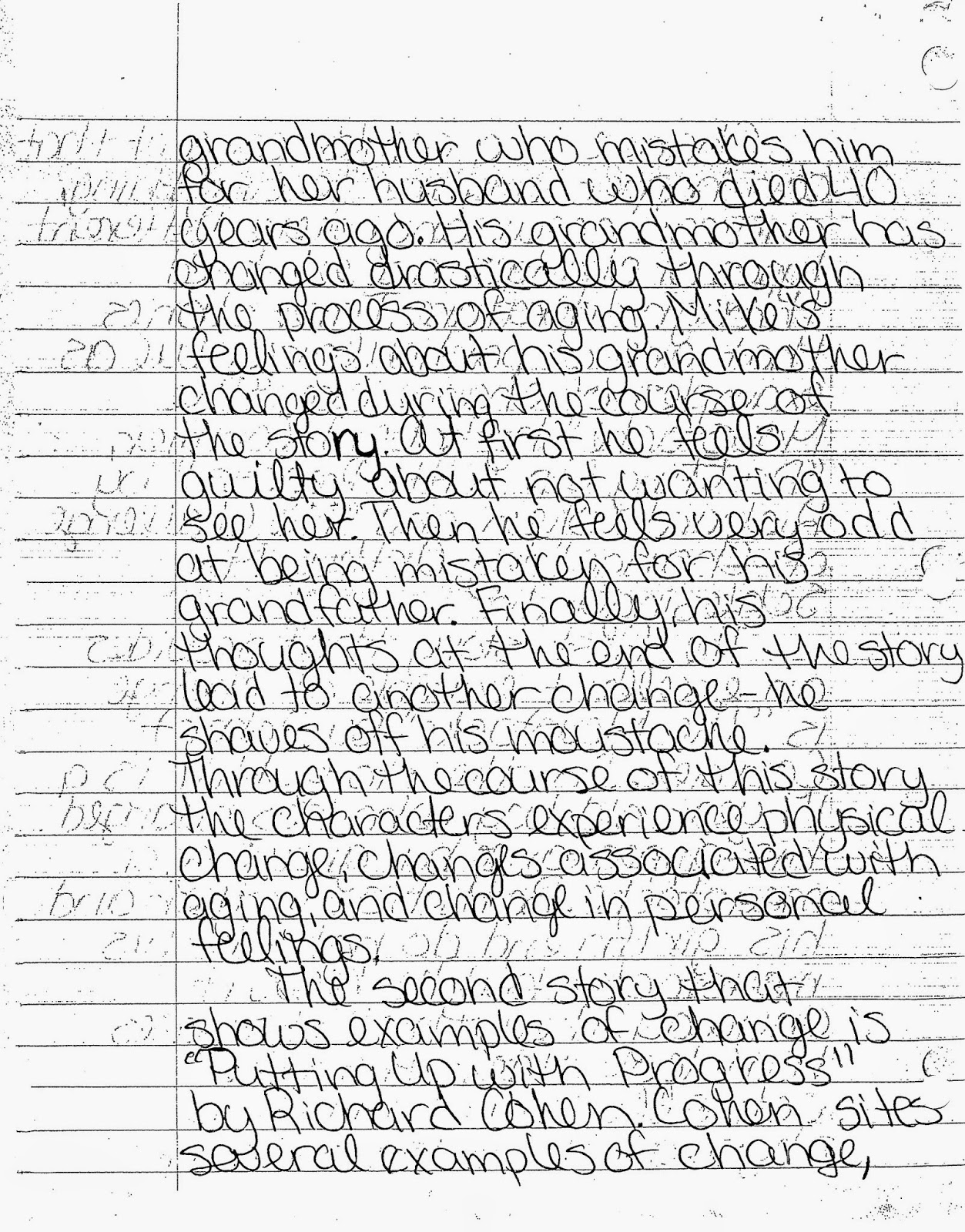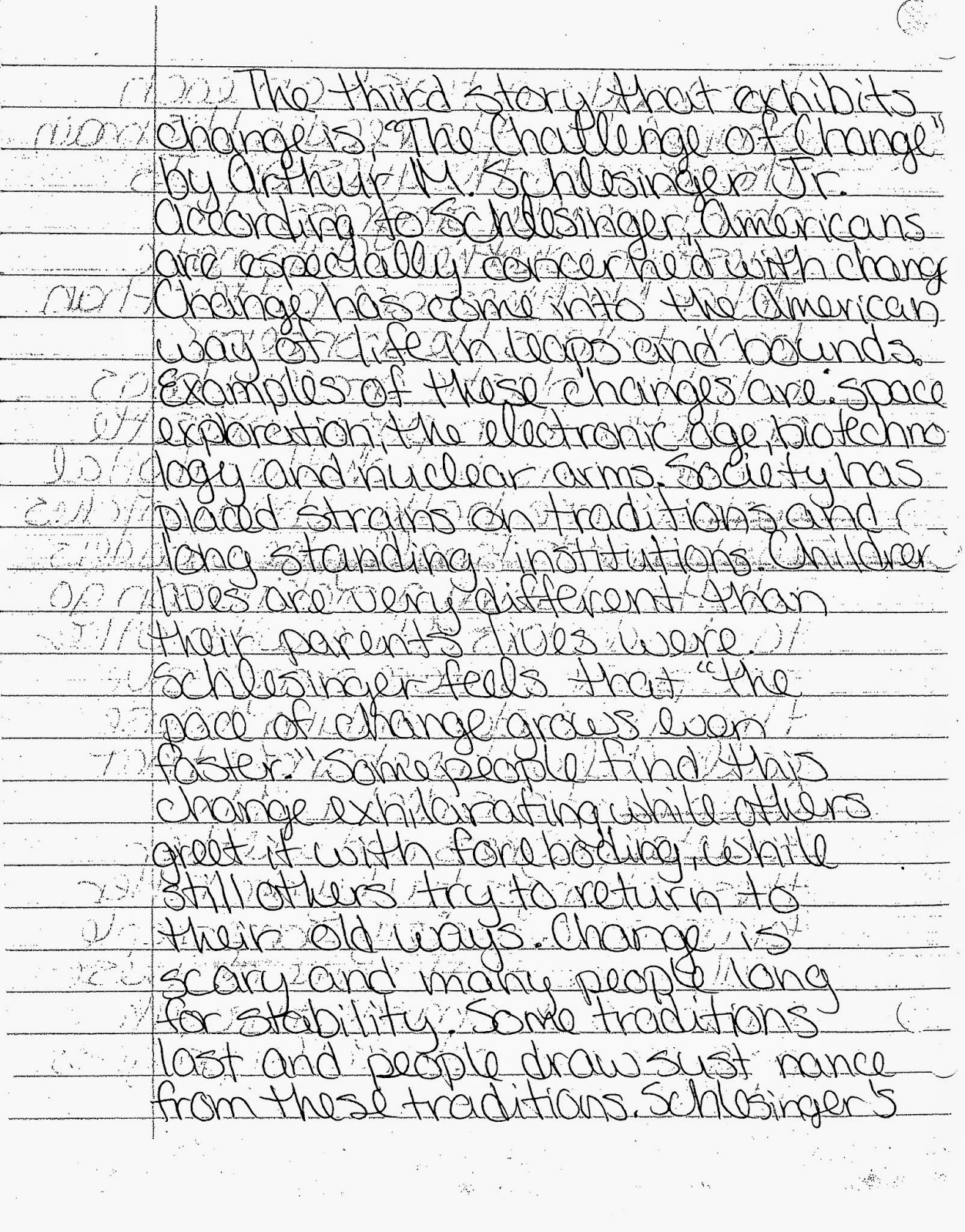The checklist would ask students to write their opening and closing paragraphs first. Students would be encouraged to check the first sentences of these paragraphs for impact. Use of vivid vocabulary, alliteration and/or starting with a subordinate clause would be encouraged to demonstrate sentence variety or control of stylistic devices.
To be on the safe side - students could be taught to create an outline structure within their first paragraph to let the reader know what was coming. This checklist and frequent use of writing prompts throughout the year would help students score: pass proficient.
When you read my student's sample - you can see, these are some of the tools I used. However, the writing is FLAT! There is a lack of transition between paragraphs and the conclusion is adequate, but not inspirational. However, the thesis is clear, has supporting details and shows a fair command of the essentials of grammar, but the overall effect of the piece doesn't make me a happy English/language arts teacher.
I had the formula for teaching students to pass proficient or advanced proficient down pat and sometimes it even produced some writing with passion, but most of the time it was FLAT and a chore to evaluate.
Here is the sample: (Sorry for the poor quality reproduction - but this was a timed prompt done in class - no computers and I couldn't figure out a way to edit the bleed through of the other side.)


The following sample was produced and evaluated with my standard rubric. You will see that the writer paid attention to most of the conventions - but the best thing is she got our attention right at the start of her piece. Her voice, the voice and tone of an eighth grader recalling an event that was very dramatic is on the mark. Could she elaborate? Yes. Could she have played around with alliteration, metaphors - used some stylistic devices to amp up her narrative? Yes. Do I feel that this piece is authentic and with some peer review, revision and edits have become a superlative piece of writing? Yes. Here is her sample:
The checklist/rubric/formula for "super" writing is well-developed and students of all abilities can amaze teachers, friends, parents and the general public when they find their topic. That is where the teacher can work some magic - even with the deadliest of prompts. The greater joy, however, is to find out the true passion of your students and that is like pushing a peanut up a mountain with your nose. I spent days on my knees next to students asking questions, doing guided imagery, sharing my own writing - you name it - I tried it to open their minds to some idea that grabbed their imagination.
I presented prompts as a game/challenge. How can a student visualize the reader of the essay? How can he/she amuse, amaze, confound and challenge him or her with our writing? Isn't it fun to think that when the scorer comes to the piece I've written that it will wake him or her up? Or if a computer is scoring my sample - isn't it great to think that I've beaten the algorithm? Every time I taught test taking skills, I always presented it as a challenge - it was little-old-me against the Goliath of the test designers and I wanted to beat them at their own game.
This year - try to encourage your students to see the tests as a fun chance to get back at "the man". This may be a mythical battle, but if ever there was a time to encourage imagery and use it to arm your students to use every "weapon" you've given them to WIN - this may be the time to get a battle theme going. I hope you win any contests you have this school year.





No comments:
Post a Comment